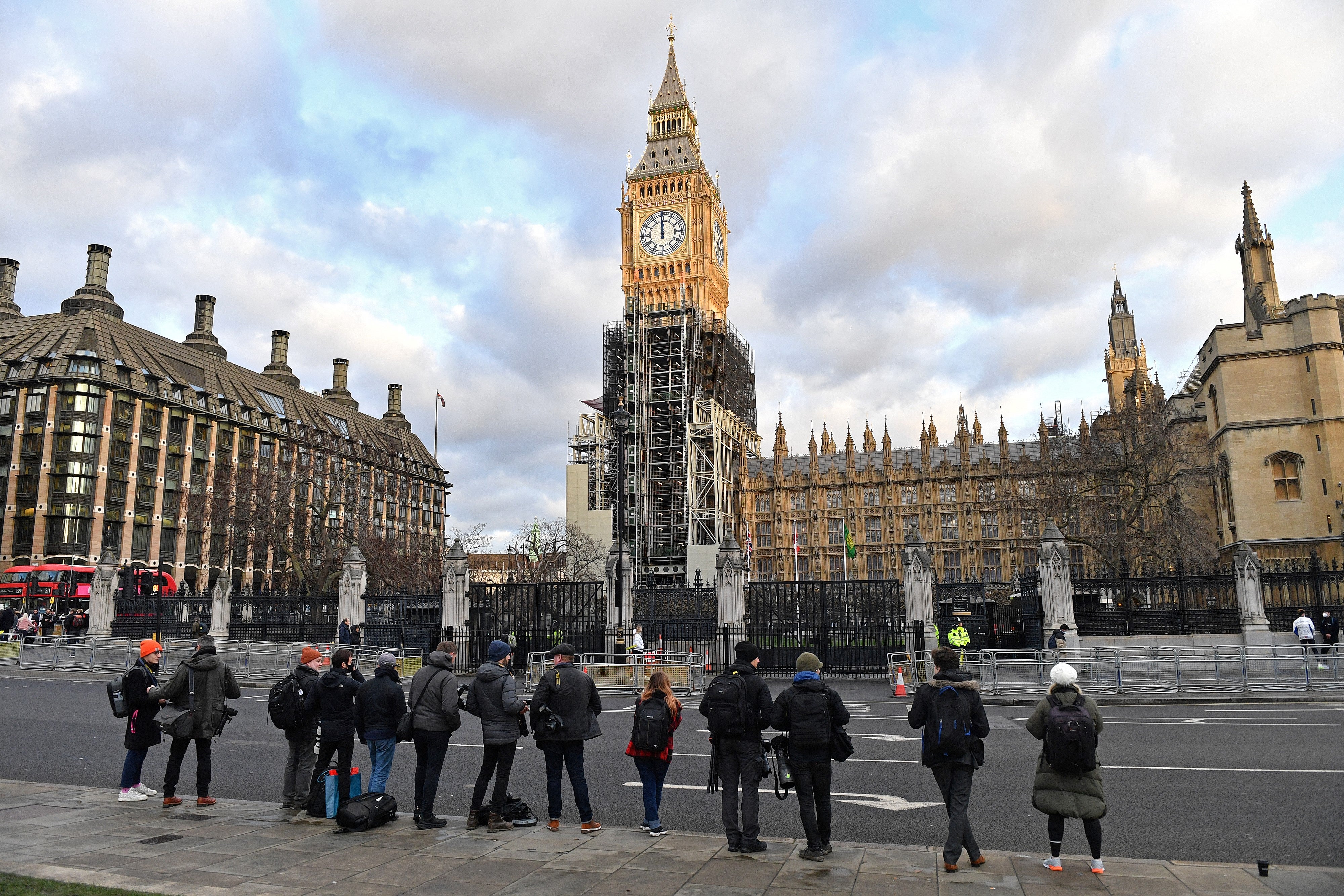The Top 10: MPs better known for other things
Keir Starmer was director of public prosecutions and Boris Johnson was a ‘Daily Telegraph’ columnist, but some MPs’ other jobs were even more famous


Your support helps us to tell the story
From reproductive rights to climate change to Big Tech, The Independent is on the ground when the story is developing. Whether it's investigating the financials of Elon Musk's pro-Trump PAC or producing our latest documentary, 'The A Word', which shines a light on the American women fighting for reproductive rights, we know how important it is to parse out the facts from the messaging.
At such a critical moment in US history, we need reporters on the ground. Your donation allows us to keep sending journalists to speak to both sides of the story.
The Independent is trusted by Americans across the entire political spectrum. And unlike many other quality news outlets, we choose not to lock Americans out of our reporting and analysis with paywalls. We believe quality journalism should be available to everyone, paid for by those who can afford it.
Your support makes all the difference.Thanks to Elliot Kane for the idea of this list. An embarrassment of riches and a succession of well I nevers.
1. Geoffrey Chaucer. MP for Kent in 1386, a member of the Wonderful Parliament of Richard II. Nominated by ChS.
2. Dick Whittington. Better known as a mayor, but was also MP for the City of London in 1416. Thanks to Stewart Slater.
3. Francis Bacon. MP for Bossiney, Cornwall; Melcombe, Dorset; Taunton; Liverpool; Middlesex; Ipswich; and Cambridge University; between 1581 and 1614, the Addled Parliament. Nominated by Ed Lennox.
4. Francis Drake. MP for Camelford, Cornwall, and then Bossiney (succeeding Francis Bacon) and later Plymouth, between 1581 and 1593. Another from Stewart Slater.
5. John Donne. MP for Brackley, Northants, 1601 and for Taunton, 1614, another member of the Addled Parliament. Nominated by Wario Argento.
6. Samuel Pepys. MP for Castle Rising, Norfolk, and then Harwich, between 1673 and 1689. Another from Ed Lennox.
7. Christopher Wren. MP for Plympton Erle, New Windsor (although his election was twice declared void in a dispute over the franchise) and then Weymouth and Melcombe Regis, between 1685 and 1702. Thanks again to Stewart Slater and Ed Lennox.
8. John Stuart Mill. Liberal MP for City of Westminster, 1865-68. Thanks to David Herdson, Matthew Pennekamp and others.
9. Isaac Newton. MP for the University of Cambridge, 1689-90 and 1701-02. Nominated by Alexander Sabin, Rupes, Ed Lennox and Stewart Slater.
10. Hilaire Belloc. Liberal MP for Salford, 1906-10. Thanks to Michael Crick, Richard K, Meic Goodyear and Sandy Walkington.
No room, therefore, for John Buchan, Unionist MP for the Combined Scottish Universities, 1927-35, who was quite well known as a politician (he was also governor general of Canada). Nor for William Huskisson, MP for Morpeth, Liskeard, Harwich, Chichester and Liverpool, from 1796: a cabinet minister better known for being the first person killed in a train accident, hit by Stephenson’s Rocket in 1830. Thanks to Robert Boston and Mark Ramsbottom.
I ruled out the Duke of Wellington, who is unusual in that he is better known as the victor of Waterloo than he is as prime minister, let alone as an MP. As Arthur Wellesley he was Tory MP for Rye and then Newport in 1806 and 1807. As prime minister, though, he was in the House of Lords. Nominated by Tim Carrington. “I can’t imagine the Iron Duke handling a constituency surgery very well,” added Stewart Slater.
And I excluded living former MPs, such as Jeffrey Archer (Con, Louth, 1969-74), Sebastian Coe (Con, Falmouth, 1992-97), Glenda Jackson (Lab, Hampstead, 1992-2010) and Martin Bell (Ind, Tatton 1997-2001). Thanks to Steven Fogel, John Peters, Jerry Mouse and Conor Downey.
There is always one. This week it is Mark Ramsbottom, who nominated Baldrick, who was rewarded for being Prince George’s dogsbody by being the MP for the rotten borough of Dunny-on-the-Wold. Nominations for Ed Balls and Boris Johnson were also not accepted.
Next week: People who understood Twitter centuries before it was invented, such as David Hume, who said: “Disputes with men, pertinaciously obstinate in their principles, are, of all others, the most irksome.”
Coming soon: Fictions in which the narrator is the baddie.
Your suggestions please, and ideas for future Top 10s, to me on Twitter, or by email to top10@independent.co.uk
Join our commenting forum
Join thought-provoking conversations, follow other Independent readers and see their replies
0Comments